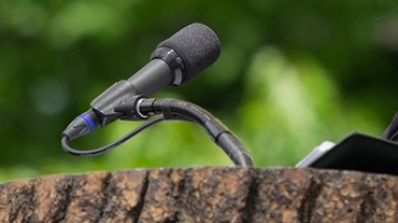In this course, we will consider some challenges of writing speeches. As we move toward better writing for the ear, we will consult ancient and contemporary texts and practice the craft of speechwriting. To recognize the collaborative nature of speechmaking and speechwriting, we will work in peer groups for feedback, advice, and perspective.
Students will not only write but also deliver speeches.
We will pay close attention to the strengths and weaknesses of speech manuscripts, comparing manuscripts with extemporaneous, memorized, and impromptu approaches to speech. How can a speech set to paper resonate with the dynamism of spontaneous, heartfelt utterances? How can a speaker avoid rote memory while using a manuscript and sustaining crucial engagement with an audience? We'll move back and forth between speaking and writing, seeing how each can inform the other.
One of the means we'll use to make these discoveries about speechwriting is dialogue. If we want our speeches to reflect the dynamism and collaboration of dialogue (and I argue that we do), we should use dialogue to build our speeches. I'm using dialogue here as a broad, general term—encompassing talk, conversation, speaking aloud. We will engage in dialogue, not just to audition our arguments and ideas, but also, to discover our arguments and ideas.
There will be two longer speeches written and delivered during the term. You will also write and deliver a number of shorter speeches, including two speeches written for and delivered by other speakers. Speeches will be more formal than informal and will be evaluated as they are delivered. That is, we'll assess speeches as speeches, not as writings. Note that we'll average a little over one speech per week during the term, and each will involve pre- and post-speech writings.
You'll be asked to regularly post entries to our class blog on Blackboard, and you will also keep a Blackboard-based journal during the term to help monitor your progress in speechwriting and speaking.
During the course, we will face a number of speechwriting challenges: How do we convert our ideas into spoken words of influence? How can we write more effectively for the ear? How can we reflect the spontaneity and dynamism of dialogue in a speech set to paper? To offer some answers to these questions and others, we'll speak about speaking, write about speaking, speak about writing, and write about writing. Meta-communication—in many forms, across mediums—will play a central role in the course.
